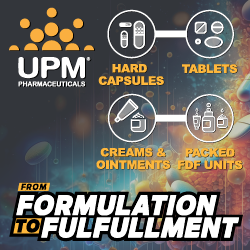Stemline Therapeutics Receives Breakthrough Therapy Designation
Stemline Therapeutics, Inc. recently announced that the US FDA has granted Breakthrough Therapy Designation to SL-401, a targeted therapy directed to the interleukin-3 receptor (CD123), for the treatment of blastic plasmacytoid dendritic cell neoplasm (BPDCN).
The FDA’s Breakthrough Therapy Designation is intended to expedite the development and review of a drug candidate for serious or life-threatening conditions. The criteria for Breakthrough Therapy Designation require clinical evidence demonstrating the drug may offer substantial improvement on one or more clinically significant endpoints versus existing therapies.
This Breakthrough Designation request was supported by efficacy and safety data from the Phase II trial evaluating SL-401 in BPDCN patients in both the first-line and relapsed/refractory settings.
“We are very pleased that SL-401 has been granted Breakthrough Therapy Designation for BPDCN by the FDA. We continue to work closely with the agency in an effort to make this promising agent available to all BPDCN patients as quickly as possible. Given SL-401’s clinical activity in this CD123+ cancer, coupled with its manageable, non-overlapping safety profile with other oncology agents, we are also enthusiastic about the drug’s prospects in our other enrolling clinical trials in additional CD123+ indications as both a single agent and in combination. We expect to provide further updates around our multiple SL-401 clinical programs later this year,” said Ivan Bergstein, MD, Stemline’s Chief Executive Officer.
Stemline Therapeutics, Inc. is a clinical-stage biopharmaceutical company developing novel oncology therapeutics. Stemline is developing three clinical-stage product candidates, SL-401, SL-701, and SL-801. A Phase II potentially pivotal trial with SL-401, a targeted therapy directed to the interleukin-3 receptor (CD123) present on a wide range of hematologic cancers, is enrolling patients with blastic plasmacytoid dendritic cell neoplasm (BPDCN) for which it has received Breakthrough Designation from the US FDA. Data from this ongoing trial have demonstrated high overall response rates (ORR), with multiple complete responses (CRs). Patients are being followed for response duration and outcomes, and new patients continue to enroll into the study. In addition, ongoing Phase II trials with SL-401 are currently enrolling patients with additional malignancies including acute myeloid leukemia (AML) in remission with high risk for relapse including minimal residual disease (MRD) and advanced, high risk myeloproliferative neoplasms (MPN) of unmet medical need. A Phase I/II trial in relapsed/refractory multiple myeloma with SL-401 in combination with standard therapies is also enrolling patients. A Phase II trial with SL-701, an immunotherapy designed to activate the immune system to attack tumors, is currently enrolling adult patients with second-line glioblastoma multiforme (GBM). A Phase I trial with SL-801, a novel oral small molecule reversible inhibitor of XPO1, is currently enrolling patients with advanced solid tumors. For more information, visit www.stemline.com.
Total Page Views: 1772












